第74章 CHAPTER XXII A GREAT PERIL AND A GREAT SALVATION(2
It was an easy journey to Bruderstroom through the meadows of the plateau. The farmers' commandoes had been recalled, but the ashes of their camp fires were still grey among the bracken. I fell in with a police patrol and was taken by them to a spot on the Upper Letaba, some miles west of the camp, where we found Arcoll at late breakfast. I had resolved to take him into my confidence, so I told him the full tale of my night's adventure. He was very severe with me, I remember, for my daft-like ride, but his severity relaxed before I had done with my story.
The telling brought back the scene to me, and I shivered at the picture of the cave with the morning breaking through the veil of water and Laputa in his death throes. Arcoll did not speak for some time.
'So he is dead,' he said at last, half-whispering to himself.
'Well, he was a king, and died like a king. Our job now is simple, for there is none of his breed left in Africa.'
Then I told him of the treasure.
'It belongs to you, Davie,' he said, 'and we must see that you get it. This is going to be a long war, but if we survive to the end you will be a rich man.'
'But in the meantime?' I asked. 'Supposing other Kaffirs hear of it, and come back and make a bridge over the gorge?
They may be doing it now.'
'I'll put a guard on it,' he said, jumping up briskly. 'It's maybe not a soldier's job, but you've saved this country, Davie, and I'm going to make sure that you have your reward.'
After that I went with Arcoll to Inanda's Kraal. I am not going to tell the story of that performance, for it occupies no less than two chapters in Mr Upton's book. He makes one or two blunders, for he spells my name with an 'o,' and he says we walked out of the camp on our perilous mission 'with faces white and set as a Crusader's.' That is certainly not true, for in the first place nobody saw us go who could judge how we looked, and in the second place we were both smoking and feeling quite cheerful. At home they made a great fuss about it, and started a newspaper cry about the Victoria Cross, but the danger was not so terrible after all, and in any case it was nothing to what I had been through in the past week.
I take credit to myself for suggesting the idea. By this time we had the army in the kraal at our mercy. Laputa not having returned, they had no plans. It had been the original intention to start for the Olifants on the following day, so there was a scanty supply of food. Besides, there were the makings of a pretty quarrel between Umbooni and some of the north-country chiefs, and I verily believe that if we had held them tight there for a week they would have destroyed each other in faction fights. In any case, in a little they would have grown desperate and tried to rush the approaches on the north and south. Then we must either have used the guns on them, which would have meant a great slaughter, or let them go to do mischief elsewhere. Arcoll was a merciful man who had no love for butchery; besides, he was a statesman with an eye to the future of the country after the war. But it was his duty to isolate Laputa's army, and at all costs, it must be prevented from joining any of the concentrations in the south.
Then I proposed to him to do as Rhodes did in the Matoppos, and go and talk to them. By this time, I argued, the influence of Laputa must have sunk, and the fervour of the purification be half-forgotten. The army had little food and no leader. The rank and file had never been fanatical, and the chiefs and indunas must now be inclined to sober reflections.
But once blood was shed the lust of blood would possess them.
Our only chance was to strike when their minds were perplexed and undecided.
Arcoll did all the arranging. He had a message sent to the chiefs inviting them to an indaba, and presently word was brought back that an indaba was called for the next day at noon. That same night we heard that Umbooni and about twenty of his men had managed to evade our ring of scouts and got clear away to the south. This was all to our advantage, as it removed from the coming indaba the most irreconcilable of the chiefs.
That indaba was a queer business. Arcoll and I left our escort at the foot of a ravine, and entered the kraal by the same road as I had left it. It was a very bright, hot winter's day, and try as I might, I could not bring myself to think of any danger.
I believed that in this way most temerarious deeds are done; the doer has become insensible to danger, and his imagination is clouded with some engrossing purpose. The first sentries received us gloomily enough, and closed behind us as they had done when Machudi's men haled me thither. Then the job became eerie, for we had to walk across a green flat with thousands of eyes watching us. By-and-by we came to the merula tree opposite the kyas, and there we found a ring of chiefs, sitting with cocked rifles on their knees.
We were armed with pistols, and the first thing Arcoll did was to hand them to one of the chiefs.
'We come in peace,' he said. 'We give you our lives.'